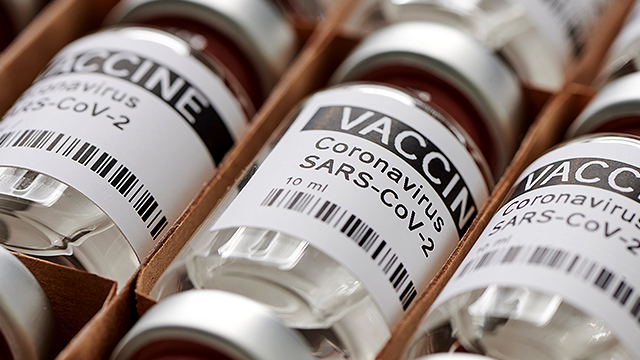
(SPOT.ph) The arrival of COVID-19 vaccines is seen as the endgame in what's currently the world's longest quarantine (read: ours), which started in March. And local government units are stepping in to make sure that their residents are getting the doses they need to fight the virus. Quezon City, for one, secured on January 11 up to 1.1 million doses of the AstraZeneca vaccine. Mayor Joy Belmonte signed the said agreement with the Inter-agency Task Force on Emerging Infectious Disease and AstraZeneca Pharmaceuticals Philippines on Monday.
Quezon City initially ordered 750,000 doses for 375,000 residents from the priority sectors, including health workers, senior citizens, and persons with disabilities. The additional order is set to increase the beneficiaries to up to 550,000 individuals. The vaccines are expected to arrive in the third quarter of the year.
AstraZeneca (formerly AZD1222) was developed by Oxford University researchers in England. It has been reported to have 70.4% efficacy (confidence interval: 54.8% to 80.6%) based on phase three trials in the United Kingdom and Brazil. It was approved for use on December 30, and was immediately rolled out in six hospitals in Oxford, London, Sussex, Lancashire, and Warwickshire.
Unlike traditional vaccines where the patient is injected with a deactivated virus, AstraZeneca has a genetic instruction (DNA) from the coronavirus (but not the whole thing) combined with adenovirus (common colds). When the vaccine is injected into the patient, the DNA enveloped in the adenovirus enters the cells and produces the spike protein (yes, the spikes we see in a COVID-19 virus). The body sees this as a virus, pushing the immune system to react, produce antibodies, and activate T-cells that will destroy cells with the spike protein. When the coronavirus enters the body in the future, the patient already has the necessary T-cells to fight the virus.
On the other hand, Coronavac, which is being pushed by the national government, was developed by China's Sinovac Biotech. Effectivity is yet to be confirmed because phase-three trials are giving different results. Brazil, for example, said in December that Sinovac has 50% effectivity, but withheld full results. Another late-stage Brazilian trial claimed 78% effectivity, but with lack of data details. Turkey's trials showed that the vaccine was 91.25% effective.
Coronavac uses killed or deactivated coronavirus particles, and directly exposes this to the body's immune system through injection. The immune system is expected to kick in and develop the necessary antibodies for future infection.
Malacañang on January 11 secured 25 million doses of Coronavac by China's Sinovac Biotech. The first 50,000 doses are expected to arrive in February. Like Quezon City, other local government units in Metro Manila have secured COVID-19 vaccines in advance.
These are the Metro Manila cities with COVID-19 vaccine orders, according to CNN Philippines:
- Caloocan City: 600,000 doses from AstraZeneca
- Mandaluyong City: AstraZeneca doses worth P200 million
- Makati City: 1 million doses from AstraZeneca
- Manila City: 800,000 doses from AstraZeneca
- Muntinlupa City: 100,000 doses from AstraZeneca
- Navotas City: 100,000 doses from AstraZeneca
- Pasig City: 400,000 doses from AstraZeneca worth P100 million
- San Juan City: P50 million allocated for AstraZeneca doses
- Taguig City: No details yet on the number of doses from AstraZeneca
- Valenzuela City: 640,000 doses from AstraZeneca
[ArticleReco:{"articles":["84887","84899","84801","84765"], "widget":"Hot Stories You Might Have Missed"}]
Hey, Spotters! Check us out on Viber to join our Community and subscribe to our Chatbot.
Source: Spot PH
No comments:
Post a Comment